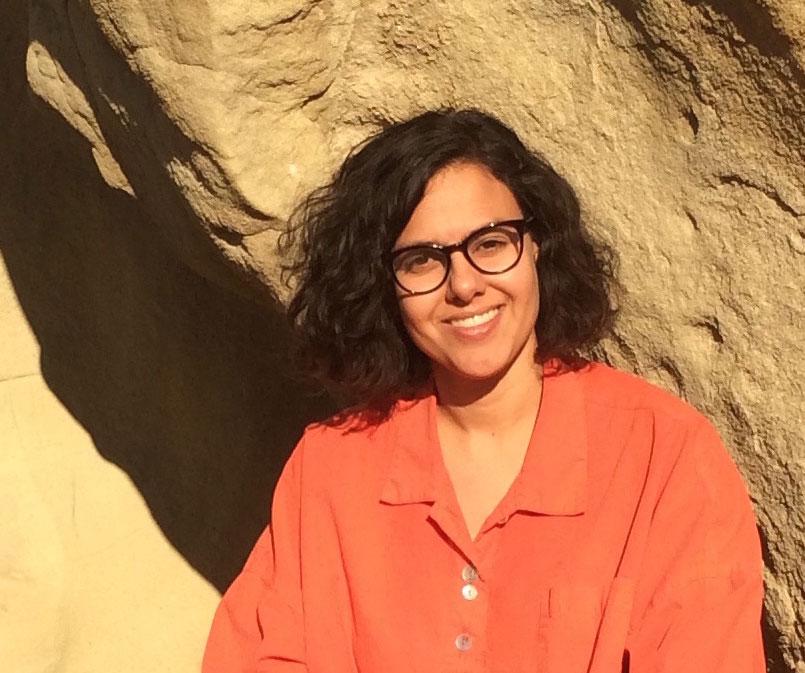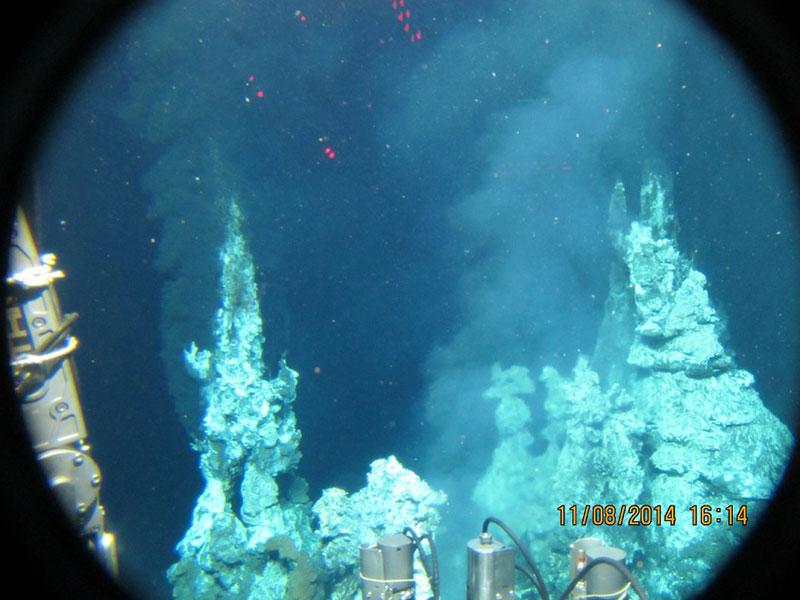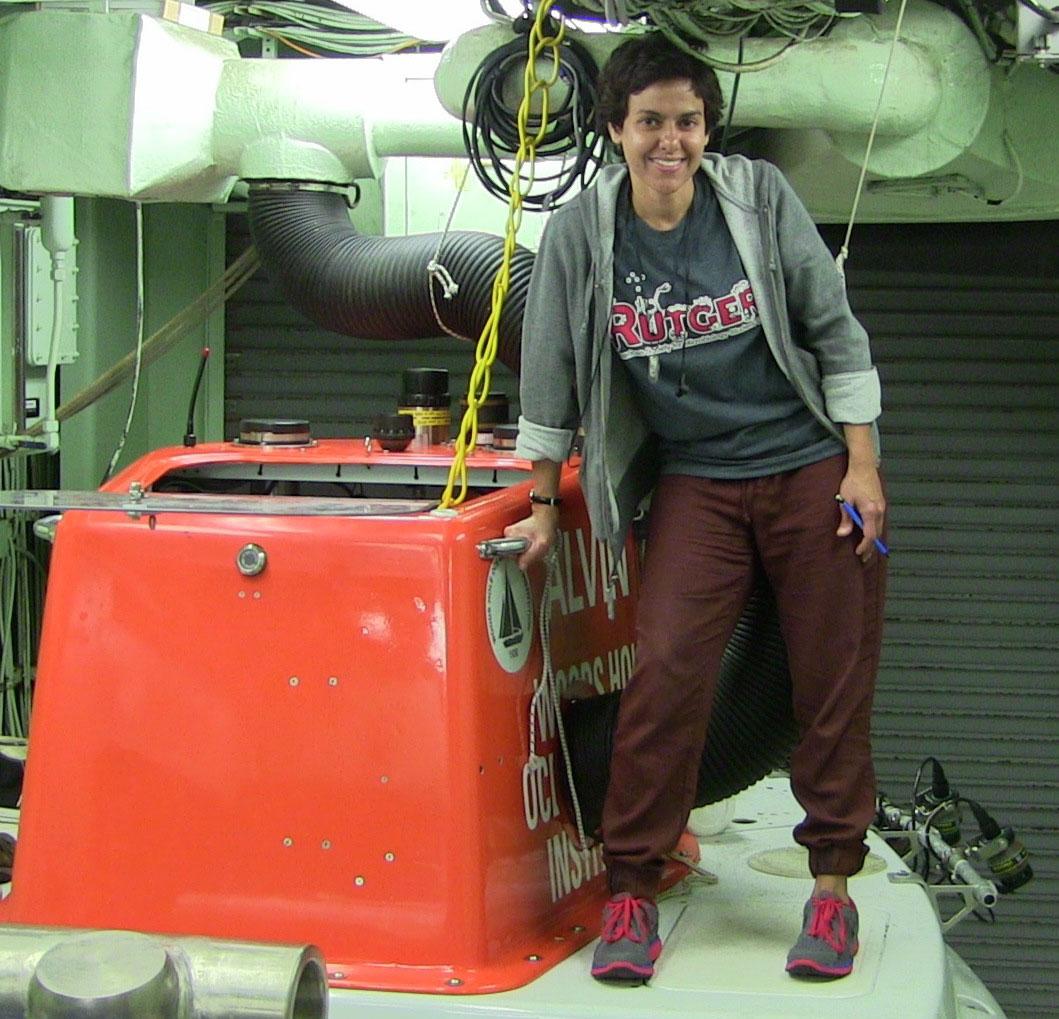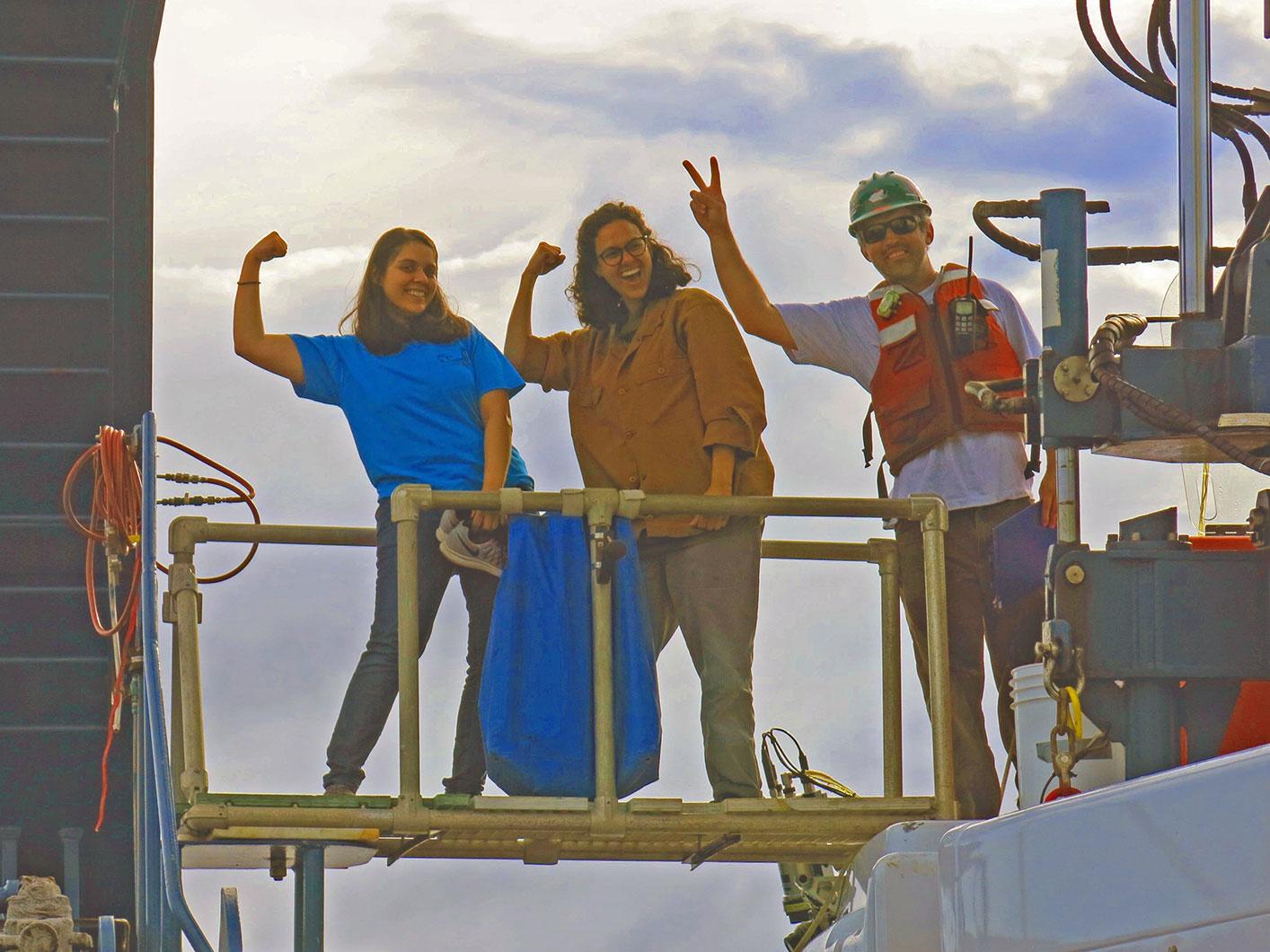PHILADELPHIA WOMEN IN SCIENCE
Our new Women in Science series features women on the front lines of science doing exciting work in genetics, chemistry, marine biology, and much more. Dr. Ileana Pérez-Rodríguez is exploring microbial metabolisms at hydrothermal vents on the ocean floor.

Who: Ileana Pérez-Rodríguez, Ph.D.
Assistant Professor and Elliman Faculty Fellow
University of Pennsylvania, Philadelphia
Specialty: Microbial ecology
Tell us about your current work.
I study microbial metabolisms associated to hydrothermal activity, usually along mid-ocean ridges. As I set up the Geomicrobiology Laboratory [in the Department of Earth and Environmental Science at the University of Pennsylvania], my goal is to integrate physiological, microbiological, and geochemical approaches to evaluate matter and energy flows between microbial metabolisms and the environment. In addition, I aim to explore the use of geomicrobial reactions for industrial processes in bioremediation and waste-to-energy technologies.

View of hydrothermal vents from DSV Alvi.
How did you get into science?
I grew up in a family that enjoys the STEM fields. My father is a retired mechanical engineer, and all of my siblings (two brothers and one sister) are now working within the STEM fields (electrical engineering, ophthalmology, and molecular biology/immunology). Being the youngest of my household, the choices made by my siblings--especially those of my sister--had a significant effect on me. However, my approach to science has been motivated by my affection to other life-forms, a trait I share with my mother.
Additionally, I have always enjoyed creative pursuits. So when I was first accepted to the University of Puerto Rico, Río Piedras, for undergraduate studies, I was torn between philosophy and natural sciences. Part of my indecision stemmed from my incorrect notion that the natural sciences were devoid of creative thinking. I still chose to get a bachelor's degree in biology, with the wonderful surprise that I was rewarded with both scientific rigor and creative thinking.

Dr. Ileana Pérez-Rodríguez with DSV Alvin during a 2014 oceanographic expedition .
What scientist, dead or alive, would you like to work with?
These days I would have to say Jacques Monod, a French biochemist and microbial physiologist that lived from 1910 until 1976. Monod performed detailed studies on the growth of bacterial cultures and promoted the chemostat theory as a powerful continuous culture system to investigate bacterial physiology. My own interest in the principles of microbial growth, and my intention to acquire a parallel bioreactor (chemostat) system, have led me to closely study his work in this area, which in its own way feels like working with him.
How can we get more girls interested in STEM?
I believe that making STEM fields real, palpable choices for everyone regardless of their gender, sex, race, disabilities, etc., will cascade into a [more] level playing field and a more daring scientific community. Having a representation of scientists that better matches the diversity of our social fabric will help in making STEM fields accessible to a broader range of people. Ultimately, it will help rectify the misconception that the most capable people in the STEM fields belong to a narrowed fraction of the human population.

Pérez-Rodríguez (middle) after a successful dive at the East Pacific Rise in 2017.
What’s something interesting that people may not know about you?
I have explored deep-sea hydrothermal vents 2.5 kilometers below sea level, onboard the iconic DSV Alvin! I first dove with Alvin in 2007 as a graduate student and then again last May (2017). My participation in last year’s oceanographic expedition came as an invitation from Dr. Stefan Sievert at Woods Hole Oceanographic Institution. My return to the East Pacific Rise 10 years after my first oceanographic expedition and as an independent scientist was personally a very significant milestone in my career.
April 18, 2018. Interview by Nancy Gupton. Edited for length and clarity.
More Philadelphia Women in Science
Dr. Loni Tabb: A Biostatistician Who's Breaking Barriers
Fighting to Flush Hepatitis C Out of Philadelphia: Dr. Stacey Trooskin

